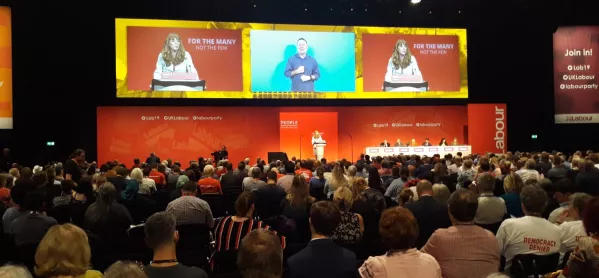Shadow education secretary Angela Rayner met with rapturous applause at the Labour Party conference this morning when she announced a Labour government would scrap Ofsted.
Ms Rayner said the inspectorate would be replaced with a new independent body and a new system of peer-review.
She said: “Schools will no longer be subjected to a one-word grade.
News: What the new Ofsted inspection framework will look like in FE
Profile: Meet Sam Jones: Star teacher and FE research pioneer
Background: Ofsted reveals FE research reference group
“A new system of peer-review will deliver school improvement led by the experts in our schools who can achieve more working together for the common good.
“A new independent body will ensure that every provider, from nursery to colleges, delivers the education that will be the right of every citizen.”
Ms Rayner also said Labour would provide free nursery education for all two-, three- and four-year-olds.
She said: “This would not be childcare on the cheap to get parents back into work but an early education service led by professionals designed to develop the whole child.”
She also met with applause when she said Labour would end university tuition fees.
And she said there would be an end to the “spiralling cost of school uniforms” forcing parents into debt, which left children often in clothes that didn’t fit.
Geoff Barton, general secretary of the Association of School and College Leaders, welcomed Labour’s recognition that Ofsted inspections were “in need of further reform”, but said the plan to replace Ofsted with a two-phase system led by local authorities was “a complicated answer”.
He said: “It seems that local authorities would be responsible for first-phase ‘health checks’ and then an inspectorate, presumably not called Ofsted, would be responsible for more in-depth inspections, if needed.
“Both tiers would require appropriate staffing, training and investment, as well as clarity about their respective roles and the trigger points for in-depth inspections.
“We all want an inspection system which works as well as possible, but the key to this is to look at how we judge performance fairly and consistently.
“This does not necessarily mean that we need to create new tiers of bureaucracy.”




